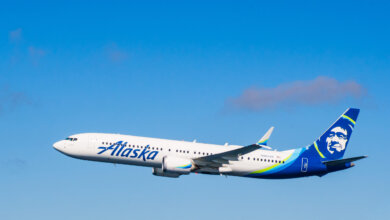
Top London Packages – Discover the Best of the UK with EazAir
London, the vibrant capital of the United Kingdom, is a city that blends centuries of history with modern attractions, offering travelers a rich cultural tapestry and unforgettable experiences. From iconic landmarks and royal palaces to bustling markets and world-class theatres, London offers something for every kind of traveler. At EazAir, we’ve curated the top London packages that make planning your trip simple, affordable, and exciting. Whether you’re looking for a quick city break, a romantic getaway, or a family adventure, our packages are designed to ensure you make the most of your London journey.
Why Choose London for Your Next Vacation?
London is one of the most visited cities in the world for a reason—it’s a destination where tradition meets innovation. You can spend your morning touring historic sites like the Tower of London and Buckingham Palace, and your afternoon exploring contemporary attractions like The Shard or Tate Modern. The city’s public transport, cultural diversity, and endless entertainment options make it an ideal destination for travelers of all ages.
With EazAir’s top London packages, you’ll enjoy:
-
Custom itineraries suited to your travel preferences.
-
Affordable deals on flights, hotels, and tours.
-
Convenience in booking everything in one place.
Top London Packages You Shouldn’t Miss
1. Classic London Highlights Package
Perfect for first-time visitors, this package covers all the must-see attractions:
-
3 to 5 nights stay in centrally located hotels.
-
Entry to iconic landmarks: Big Ben, London Eye, Tower of London, and St. Paul’s Cathedral.
-
Guided walking tour of Westminster and Buckingham Palace’s Changing of the Guard ceremony.
-
Thames River cruise for stunning city views.
This package is ideal for travelers who want to tick off all the famous spots in just a few days.
2. Luxury London Experience
If you’re looking for a premium travel experience, EazAir’s Luxury London Package offers the very best:
-
Accommodation in 5-star hotels such as The Ritz or The Savoy.
-
Private chauffeured tours around the city.
-
Fine dining experiences at Michelin-starred restaurants.
-
VIP theatre tickets in London’s West End.
It’s perfect for honeymoons, anniversary celebrations, or travelers seeking elegance and exclusivity.
3. Family-Friendly London Adventure
Traveling with kids? We’ve created packages that combine fun, learning, and convenience:
-
Tickets to the Harry Potter Studio Tour.
-
Entry to the Natural History Museum and the Science Museum.
-
Family-sized hotel rooms close to public transport.
-
Discounted passes for attractions like the London Zoo and SEA LIFE London Aquarium.
With flexible itineraries, parents can balance sightseeing with rest time, making it stress-free for everyone.
4. London Cultural & Museum Package
For history buffs and art lovers, London’s museums are a treasure trove:
-
Access to the British Museum, National Gallery, and Victoria & Albert Museum.
-
Behind-the-scenes tours for a deeper understanding of exhibits.
-
Accommodation near Bloomsbury or South Kensington for easy access.
This package is ideal for travelers who want to explore the city’s cultural side without rushing.
5. London & Day Trips Combo
London is a great base for exploring nearby attractions:
-
Guided day trips to Stonehenge, Windsor Castle, and Oxford.
-
Transportation via luxury coach or private car.
-
Multi-day accommodation in London with breakfast included.
This package is perfect for those who want a mix of city and countryside experiences.
Best Time to Book Your London Package
London is a year-round destination, but your experience can vary depending on the season:
-
Spring (March to May): Pleasant weather, blooming parks, and fewer crowds.
-
Summer (June to August): Warm weather, outdoor festivals, but higher prices.
-
Autumn (September to November): Mild climate, beautiful fall colors, and great deals.
-
Winter (December to February): Festive Christmas markets, ice-skating, and seasonal events.
At EazAir, we help you find the best top London packages for your preferred travel dates while ensuring you get the best value for your money.
What’s Included in EazAir’s Top London Packages
Our packages are tailored to meet different travel needs and often include:
-
Round-trip airfare from major international hubs.
-
Comfortable accommodation options (3-star to 5-star).
-
Airport transfers for stress-free arrivals and departures.
-
Guided tours and entry tickets to major attractions.
-
Optional add-ons like travel insurance, theatre tickets, and extra excursions.
Tips for Booking the Best London Package
-
Book Early: Popular seasons sell out quickly, so securing your package early ensures better rates.
-
Choose a Central Location: Staying in areas like Westminster, Covent Garden, or South Bank reduces travel time to attractions.
-
Consider a London Pass: Many of our packages include this all-in-one ticket for multiple attractions.
-
Travel Off-Peak: For budget-friendly deals, travel during late autumn or early spring.
-
Use EazAir’s Expertise: Our travel specialists can customize your package to suit your exact needs.
Why Book with EazAir?
At EazAir, we go beyond just offering flights and hotels—we create complete travel experiences. Our advantages include:
-
Competitive Pricing: We negotiate exclusive deals with airlines, hotels, and tour operators.
-
24/7 Customer Support: Assistance before, during, and after your trip.
-
Flexible Options: Modify your itinerary if your plans change.
-
Trusted Partnerships: We work only with reputable service providers.
Whether you’re traveling solo, as a couple, or with family, our top London packages ensure your journey is smooth, affordable, and unforgettable.
Sample 5-Day London Itinerary with EazAir
Here’s an example itinerary from one of our best-selling packages:
Day 1: Arrival in London, airport transfer, evening Thames River cruise.
Day 2: Full-day city tour covering Buckingham Palace, Big Ben, Westminster Abbey, and the London Eye.
Day 3: Day trip to Stonehenge and Windsor Castle.
Day 4: Museum day – British Museum, National Gallery, and Tate Modern.
Day 5: Free morning for shopping in Oxford Street or Covent Garden, then departure.
Final Thoughts
London is a city that offers endless opportunities for exploration, entertainment, and cultural immersion. Whether it’s your first time or your tenth, there’s always something new to discover. EazAir’s top London packages are designed to take the stress out of planning, so you can focus on enjoying your trip. From budget-friendly deals to luxury escapes, our packages cover every kind of travel and travel style.
Start your London adventure with EazAir today and see why so many travelers trust us to make their UK dreams come true. Your perfect London vacation is just a click away!








